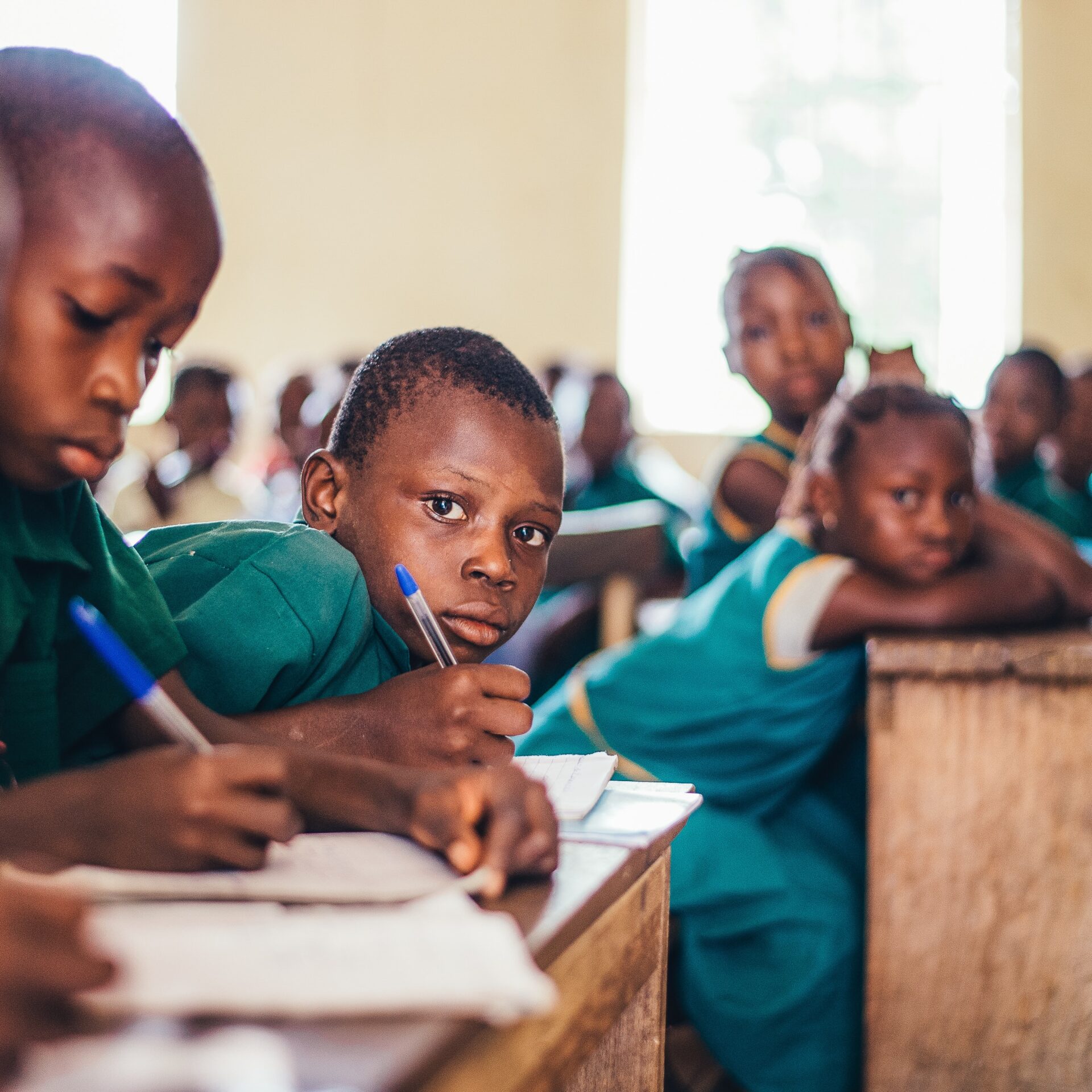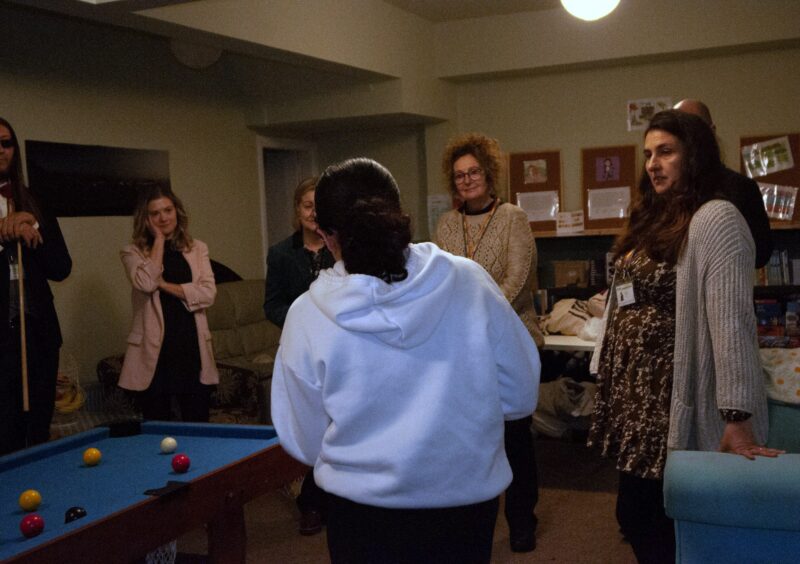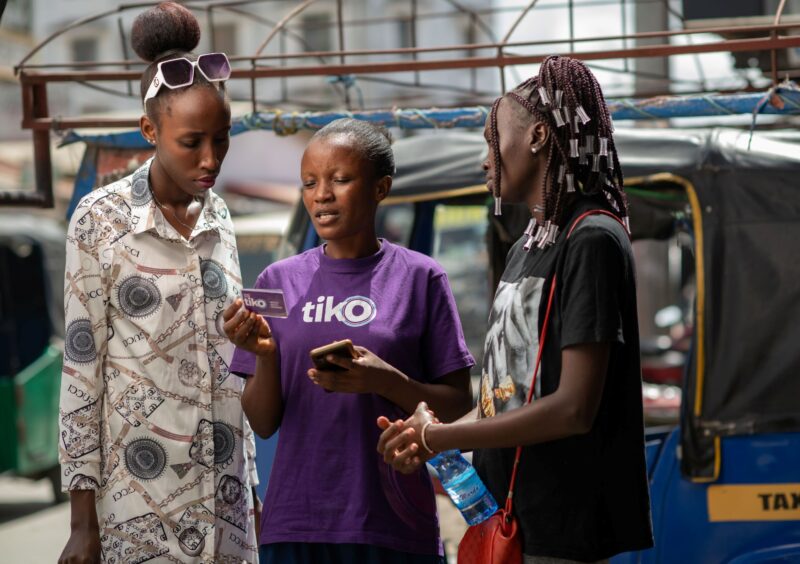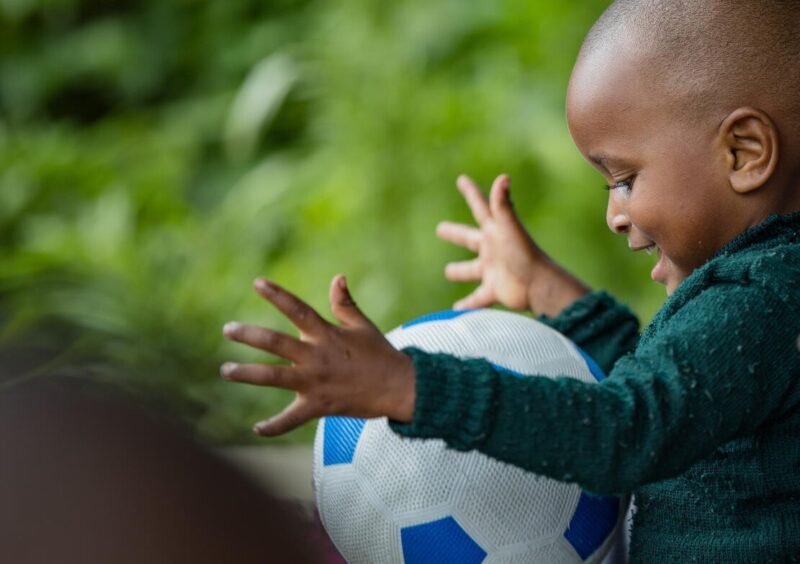13.12.2024 | Press
Groundbreaking outcomes-based initiative improves education in Sierra Leone, highlighting wider potential

In partnership with the Education Outcomes Fund (EOF), the Sierra Leone government launched the groundbreaking $18 million Sierra Leone Education Innovation Challenge (SLEIC) in 2022 – a bold initiative to improve primary education, and the largest outcomes fund for education globally.
Today, the partnership announces the achievement of strong results from this first large-scale project developing new ways to fund and deliver improvements in education in Africa and beyond, after two years of operation in Sierra Leone. The initiative is aiming to improve education for 134,000 pupils across 325 primary schools over three years.
The results suggest that outcomes-based financing and delivery are making promising progress where many other initiatives aimed at improving education in low- and middle-income countries have struggled to deliver significant learning improvements.
Measuring meaningful performance
Performance is rigorously evaluated by testing groups of children at the outset and subsequently, alongside a control group of pupils in schools that are outside of the project. This randomised control trial is run independently by Oxford Policy Management (OPM), a development consulting firm. In addition, the What Works Hub for Global Education, an international partnership hosted by the University of Oxford focused on studying the scale-up and implementation of effective education reforms, is assessing the project as part of a broader research and lesson-learning programme funded by UK International Development. Performance is measured in terms of the difference in results between schools in the programme and the control group, expressed in standard deviations (SDs).
In its second year, the SLEIC overall delivered a 0.292 SDs improvement in Maths and a 0.175 SDs improvement in English, exceeding a target of 0.164 for both subjects. This is already far ahead of the median of 0.10 SDs for improvements in learning found in a recent study of numerous education interventions in low- and middle-income countries by David K. Evans and Fei Yuan published in Educational Evaluation and Policy Analysis2.
To put the improvements in perspective, the What Works Hub for Global Education estimates that the increase in pupil achievement within schools in the second year of the SLEIC is equivalent to an extra year of schooling gained in the best-performing education systems in sub-Saharan Africa – a notable achievement given the broader contextual challenges that exist within Sierra Leone’s schooling system.
Delivering better outcomes
Bridges Outcomes Partnerships (BOP)’s partners make up three of the five SLEIC delivery partners – EducAid, Rising Academy Network, and Street Child – across five geographical areas. We are supporting their work with government schools to provide teacher training, student support, child protection, safeguarding, and community engagement, among other services.
Unlike conventional education initiatives funded through grants, the SLEIC incentivises delivery partners to focus on delivering learning outcomes and adapting delivery in real time, with payment based on improved performance in literacy and numeracy. To reflect gender barriers to educational equity in the country, larger payments are made for improvements in girls’ results and this is seen in a stronger treatment effect for girls relative to boys. In Year 2, girls have made significant progress in closing the gender learning gap.
The outcomes-based approach means that delivery partners can incorporate real-time learning and evolve their approaches over time, encouraging innovation – and that taxpayer and other donor funding is only spent on initiatives with proven impact. The three-year programme is rewriting the playbook on equal education for all.
Performance-based funding through partnership
Co-funders of the SLEIC’s results are the government of Sierra Leone, UK International Development, Korea International Cooperation Agency (KOICA), Bank of America and the Hempel Foundation, who will together pay up to $18m depending on the performance achieved.
Dr. Amel Karboul, CEO of the Education Outcomes Fund, said: “These are strong results that are a real achievement in their own right, and point to the broader potential of outcomes-based financing in education. They show what is possible when you work together to achieve ambitious education outcomes which really focus on quality. We are more convinced than ever that new, innovative approaches are needed to really focus on addressing the global crisis in children’s education. The Government of Sierra Leone has been a driver for this groundbreaking initiative, and there is so much potential to replicate this model across the continent and beyond. We are excited to be launching similar programmes in South Africa, Tunisia and Rwanda soon.”
Sir Ronald Cohen, Chair of the Education Outcomes Fund, who has pioneered outcomes-based investment since 2010, said: “Outcomes Partnerships unite all the parties involved in achieving ambitious educational outcomes. They motivate innovation and the development of more effective approaches. Our congratulations and thanks go to the government of Sierra Leone for its valuable engagement in this groundbreaking initiative.”
Conrad Sackey, Minister of Basic and Senior Secondary Education, Sierra Leone, said: “The challenge we have faced for a long time is that many well-intentioned education initiatives across the world do not deliver actual learning improvements for children, so we are very pleased to see the results being delivered by this innovative project. We hope the third year will be even more impressive and bring even greater benefits to our children and our schools, as the providers continue to hone their approaches and the project gains further momentum.”
Alicia Herbert, Director of Education, Gender and Equality at the Foreign, Commonwealth and Development Office, said: “We’re thrilled to see these results, demonstrating real and measurable improvements in children’s learning in Sierra Leone. It’s a powerful testament to how innovation and a focus on outcomes can deliver exceptional value for money.”
Image credit: Annie Spratt


